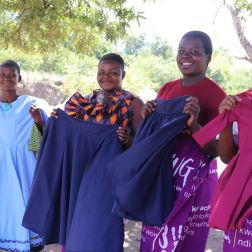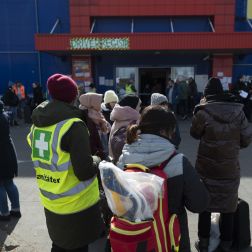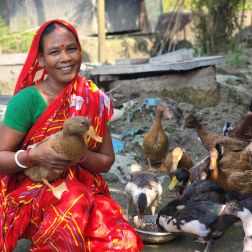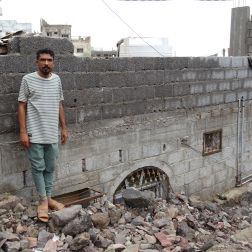- 5 mins read time
- Published: 16th March 2022
Two years of COVID-19 What Oxfam has been doing
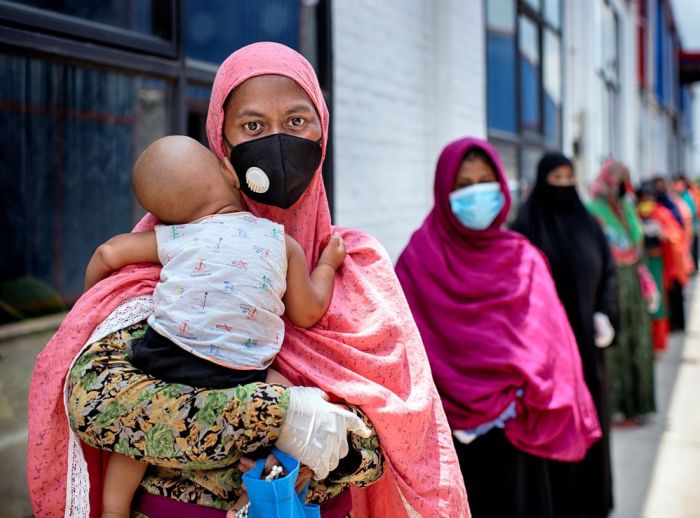
Oxfam’s global response to the coronavirus pandemic has reached across the world to help people survive, while also advocating for a People’s Vaccine.
When the COVID-19 pandemic hit Nairobi, Kenya, in March 2020, Ann Gakenia Muthungu immediately understood the life-and-death implications. The 69-year-old single mother and grandmother knew that on top of the risk of sickness and death from coronavirus, complying with government mandates to stay home meant people like her wouldn’t be able to earn income for food.
“How can we stay at home without food? We cannot live in the house,” she predicted. “You will die in the house.”
Oxfam worked with partners in Kenya and 68 other countries to provide cash for families locked down without income or food to meet their basic needs, information about the pandemic they can use to stay safe, as well as soap and protective equipment.
In 2020, Oxfam assisted more than 14 million people affected by the COVID-19 pandemic. We are continuing to help people around the world make a decent living during the pandemic, survive disasters and conflict and climate change shocks, while also advocating for more and better access to safe, affordable COVID-19 vaccines.
Hunger and the coronavirus
The implications of COVID-19 on access to food for impoverished communities was immediately evident in 2020. Farmers, traders, retailers, and consumers all faced challenges, particularly in areas where the poorest people lack any savings or food reserves.
People living in areas affected by conflict-such as Yemen, parts of West Africa, South Sudan, and Ethiopia--continue to be the most vulnerable, as some areas are on the edge of famine. In parts of the Horn of Africa, a combination of drought, flood, and even locusts have killed off livestock and crops.
By mid-2021, Oxfam estimated that 155 million people in 55 countries had been pushed into extreme levels of food insecurity, and that more than half a million were living in famine-like conditions – a six-fold increase in just a year.
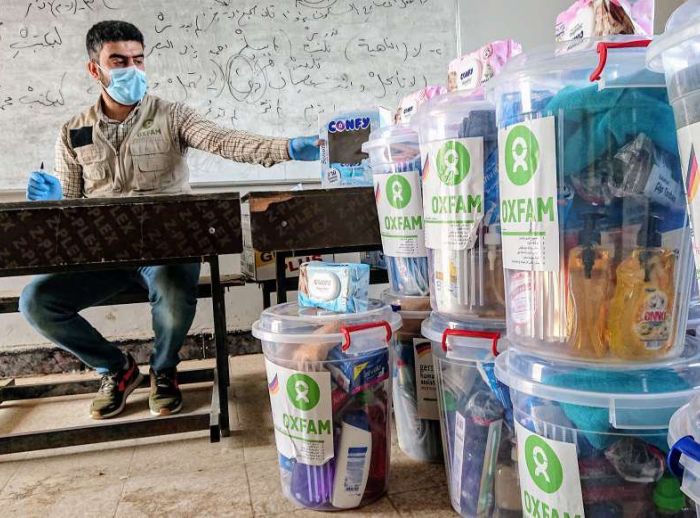
Oxfam and our partners distributed cash to families in areas with functioning markets so they could buy food, soap, and meet other basic needs during the pandemic. In other areas, we helped farmers with seeds, fertilizer, and training on growing drought-resistant food crops in places like Central America’s Dry Corridor.
Women bear the brunt of the pandemic
When the pandemic hit in 2020, it was clear it would hit men and women differently. Since then, statistics show that women suffered higher rates of job loss (5 percent for women, 3.9 percent for men). Oxfam’s research indicates this cost women globally $800 billion in lost income from 2020 to mid-2021.
When schools closed, and family members got sick, women and girls took up the additional unpaid care work at home. This is yet another factor in the increasing pandemic-driven economic inequality in the world.
And as many women found themselves stuck at home with abusive people, it increased the threat of gender-based violence, further discriminating against women.
In addition to distributing cash to families, Oxfam and our partners and allies also advocated for more and better support for families, such as a research and advocacy campaign in the Philippines that encouraged 28 towns and cities to provide day care services and improve roads connecting to markets.
Oxfam’s WE CARE campaign for women’s economic empowerment carried out research, waged campaigns, and held workshops to shine a light on the burden of women’s unpaid care work during the pandemic in Tajikistan, Ethiopia, and Kenya, just to name a few countries.
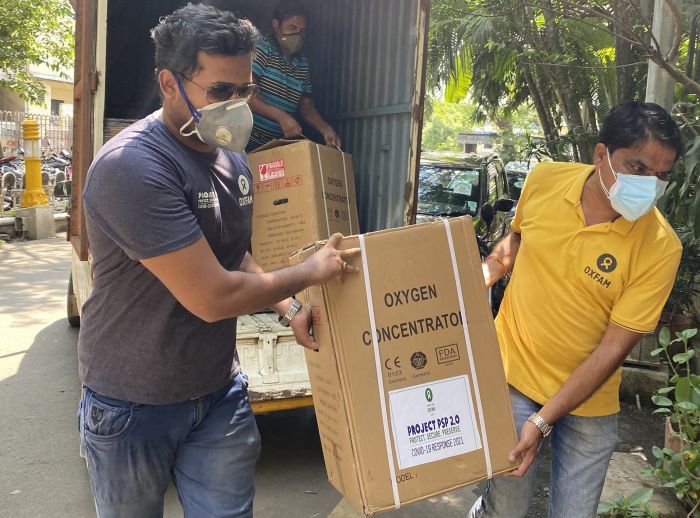
Public health crisis in India
When the coronavirus first hit India in 2020, Oxfam India worked with partners and government ministries on a massive effort to help the poorest people survive. Many were migrant workers at job sites far from home suddenly without work, food, or money. Oxfam provided cash, meals, protective masks, hand sanitizer, and hand washing facilities. At the request of local government officials, Oxfam also provided masks and hand sanitizer to hospital workers and police officers.
Since then, Oxfam has provided food to more than half a million people and distributed $409,000 in cash to 10,000 of the most vulnerable, including transgender people, sex workers, miners, survivors of domestic violence and cancer, weavers, fisherfolk, construction workers, and people affected by floods and cyclones.
When the Delta variant broke out in India in April and May 2021, Oxfam India built seven oxygen generating plants and distributed more than 13,000 pieces of lifesaving medical equipment such as oxygen cylinders, oxygen concentrators, ventilators; more than 116,000 safety and personal protection kits; 9,929 pieces of diagnostic equipment such as thermometers and oximeters; and 20,000 testing kits in 16 states. We reached 479 hospitals and other health facilities.
Oxfam provided protective equipment, digital thermometers, and oxygen meters to 64,900 community health workers in nine states. “At the beginning [of the pandemic], we didn’t have any gloves or anything,” said one health worker in Uttar Pradesh said after a training workshop to learn how to use the new digital thermometers, and where she received masks and gloves
An affordable, accessible People’s Vaccine
As we enter the third year of the COVID-19 pandemic, about six percent of people in poor countries have been vaccinated, while wealthier countries are hoarding vaccines, and parceling out just a few in donations. The result has been millions of unnecessary deaths, a steady parade of virus mutations, and more than two years of increasing inequality and suffering while the major pharmaceutical firms that created vaccines using public funds and taxpayer funded research rake in billions in profits. Four times as many people have died in low-income countries than in rich ones.
Oxfam immediately helped create the global People’s Vaccine Alliance to campaign and advocate for a patent-free, mass-produced, and fairly distributed vaccine available free of charge to everyone, rich and poor alike. This would allow more manufacturing of vaccines in more countries, leading to greater access and faster distribution.
Oxfam has called on companies to explore sharing their technology to boost manufacturing in low-income countries to make more vaccine available to more people, and save more lives.
